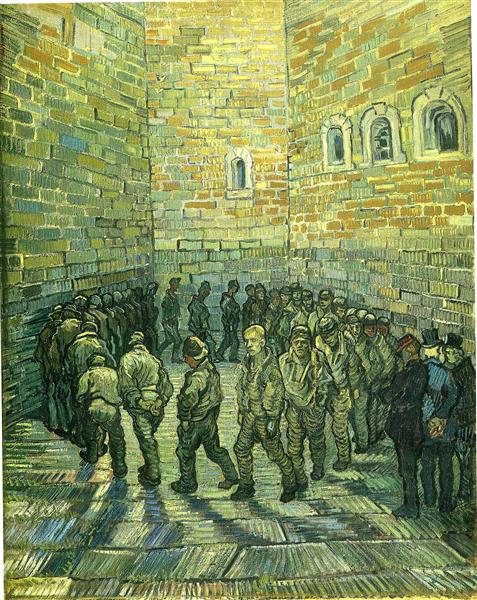Our attitudes towards emotion are manifested in how we act to reduce, avoid, or intensify them. This is, by definition, emotional regulation. There are many reasons why we might want to regulate emotion, many of them including the present discomfort of the emotion or the potential future consequences of the emotion especially related to one’s self beliefs.
There are also several methods in regulating emotion. This article focuses on how, by acting on the response element of the emotion, we can regulate some of the effects of an emotion. This method is called response modulation and we will be looking into its uses, as well as its limitations in terms of its effectiveness in regulating emotion and the consequences of emotion. Perhaps we will even learn some of what it takes to navigate the limitations of this method of emotion regulation to get its benefits.
Physiological Element of Emotion and Regulating It

As we know, there is a physiological element to emotion. Our hearts beat out of our chest when we are afraid, infatuated, or angry. We remain tired when we are depressed. We are restless when we are anxious. Something is going on in the body that is contributing to the emotional experience. Many emotions cease to exist without their biological component. This component is their tendency to get us to act or to conserve energy.
Of course, emotion is not entirely the pure physiological state. Emotion requires some interpretation of the situation in order to allow that physiological state to be enacted properly in the world. We can mistake excitement for anger because the perception of the two physiological states is so similar that we rely on the context to sort them out. But the physiological changes and feeling still play an important role in emotion states because they are often the ground in which one can interpret one’s environment. We do not mistake anger for depression because they are very different emotions physiologically.
Part of what makes us want to regulate emotion is their physiological costs to our energy, the fatigue or the restlessness or the irritability. Getting out of those states is part of emotional regulation. Perhaps the most effective way of regulating this aspect of emotion is by response modulation.
“Response modulation refers to directly influencing experimental, behavioral, or physiological components of the emotion response after the emotion is well developed.”
James Gross
It is the physiological action tendency that contributes to such a great amount of our impulsivity especially when it is a highly reinforced habit of acting. Stimuli and situations can seem to trigger the most automatic responses. These can be so quick that we have basically acted by the time we realize that we meant to regulate that impulse. Response modulation comes in at this very last moment where we save ourselves of the consequences of the expression of the emotion.
Suppression and Willpower
The most common use of this type of regulation is the suppression of the expression of the emotion. This is the ceasing of the response of the emotion without necessarily affecting the physiological or action-tendency aspects of the emotion. This is in response to another goal interfering with an element of an emotion somewhat late in its progression. However, this is not going to make a great change in the physiology of the suppressed emotion. It regulates only the behavior aspect but not the tendency towards that behavior.
Holding in a laugh, we know, does not suppress the urge to laugh, only the activity, while the urge to laugh can pass or, more likely, grow more intolerable. Suppression, and other response modulations, merely avoid the consequences of acting without dealing with the emotion itself.

Let’s look into another form of response modulation. Perhaps the opposite of suppression is to force oneself to do something from an amotivated or fatigued state. Imaging forcing yourself into cleaning the house after a long day. You change your response despite your action tendency to rest, but it does not change your emotion, you still wish to relax, but through the force of will you persist in your errands.
Both of these forms of response modulation cost a significant amount of willpower because they cut of a motivated state without dealing with the source. To fully diminishing the emotion’s tendency to make you act, you must deal with the physiological aspect of the emotion that usually only its expression can relieve. Merely controlling one’s action is not going to stop the emotion, just prevent it from doing its damage. Without properly dealing with it, it may simply do damage later by being projected on something else or resulting in a poor execution of the response modulation. For example, you may fail in holding in the laugh, or you may tiredly do a bad job of cleaning the house.
Modulating your response to activate or deactivate an emotional state is not limited to these forces of the will. Sometimes we can use strategies that are far more effective at changing the physiology of the emotion as well as the response one has to it.
Voluntary Access to Physiology
Although it is not apparent in the aforementioned strategies of respond modulation, our actions can have direct effects on the action tendency itself. While holding in a laugh only increases its tendency other methods can change the response at the same time that it reduces the tendency to act.

The action tendency of emotion tends to appear as the most unalterable or honest aspect of emotion. We do not think we have access to the physiology of the body and that we are merely observers and interpreters of what our body says to us. However, it is very easy to change one’s physiology through voluntary means: by action.
“If we wish to conquer undesirable emotional tendencies . . . go through the outward movements of those contrary dispositions which we prefer to cultivate.”
William James
The idea is to mimic a desired physiological state with one’s outward actions. We can energize the body by acting in a way that might release adrenaline such as intense exercise, breathing techniques, or a cold shower. Likewise, we can slow an overexcited emotion by breathing deep with slow exhales. Before competition an athlete will enact rituals that allow for focus and confidence. There may be many other ways to influence the action tendency of an emotional state, but these are a few of the “healthy” ones.
Sometimes rather than changing one’s physiology by natural actions and rituals, people will take advantage of some of this strategy by taking drugs that elicit either excitement or calm. Substance abuse can play a role in many forms of emotion regulation, but to quell an emotional state with alcohol, certainly has its ties with reduction of the action tendency that might be residing after modulating an emotional response.



